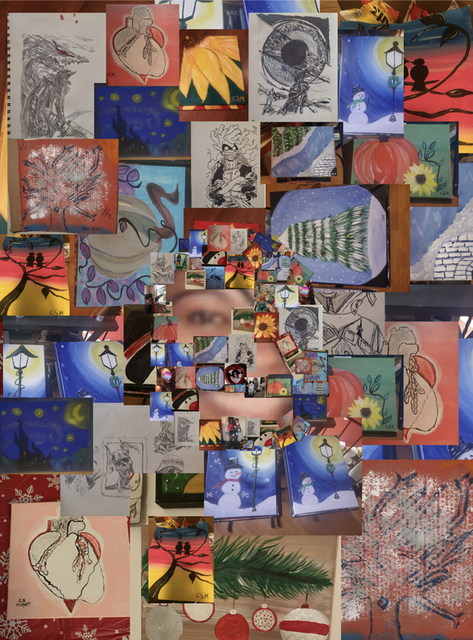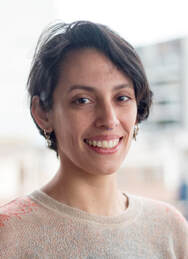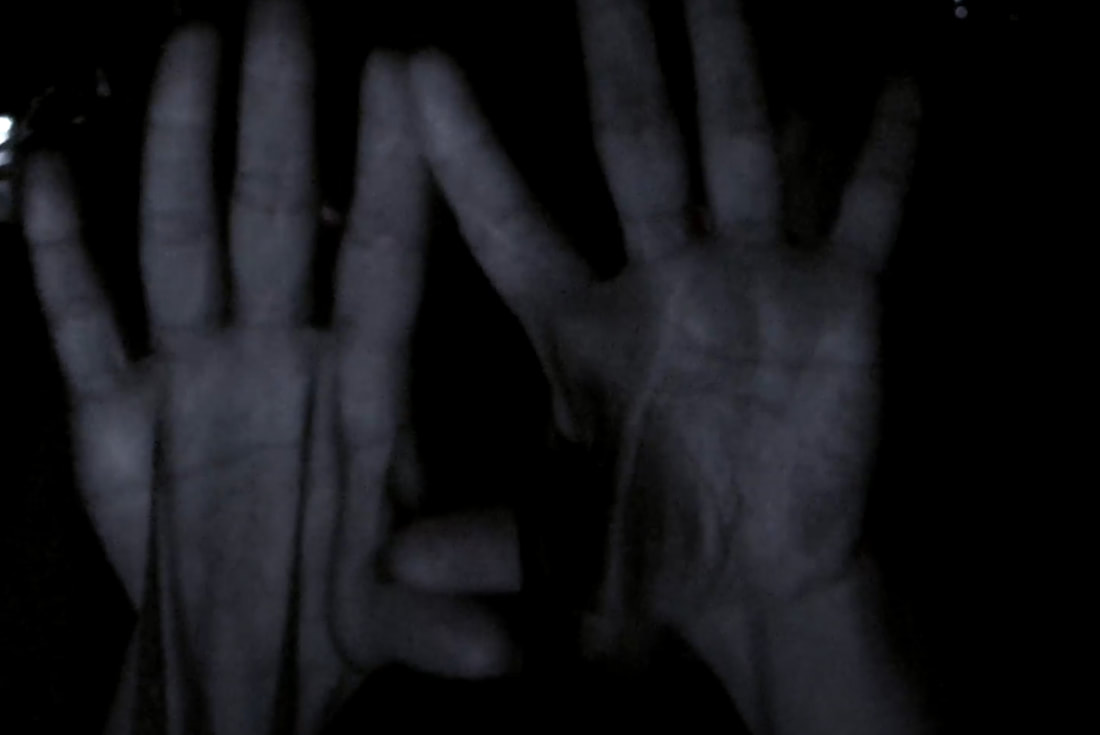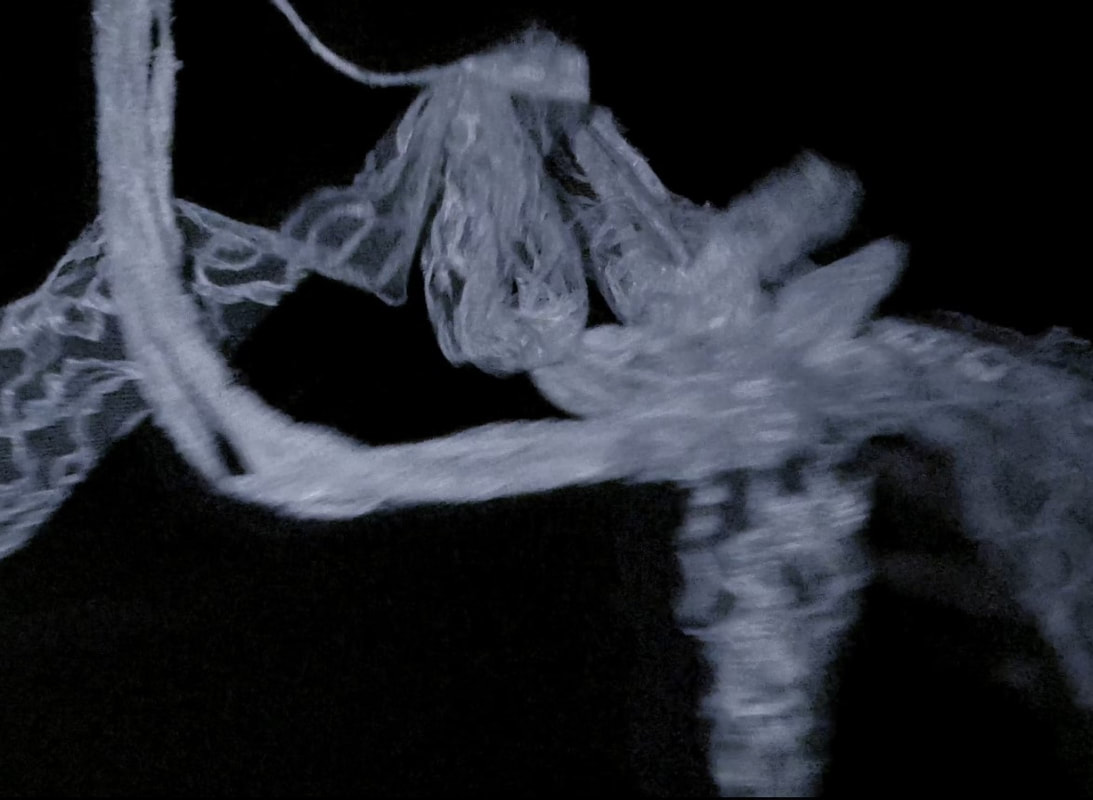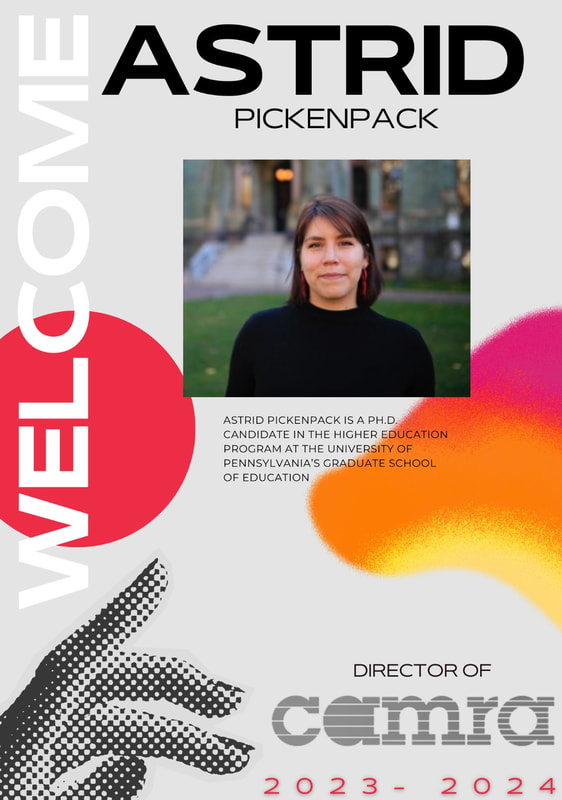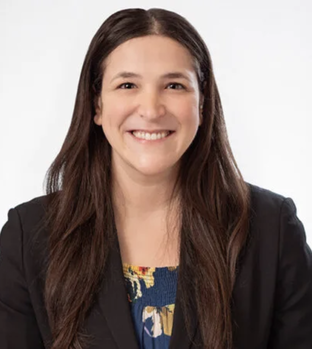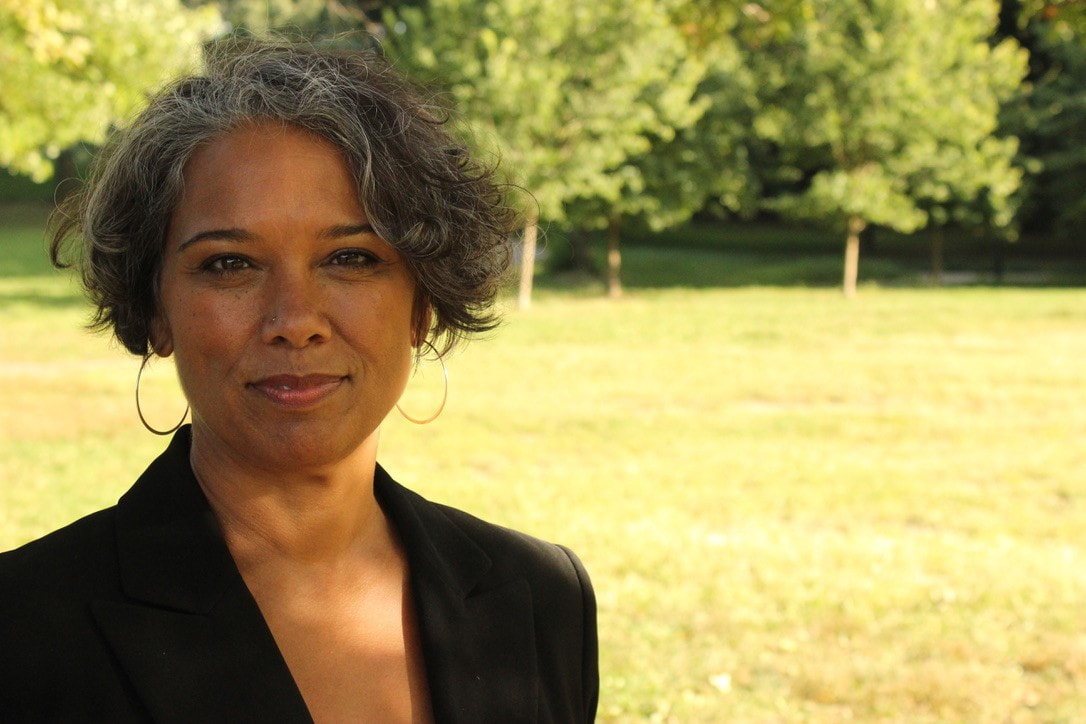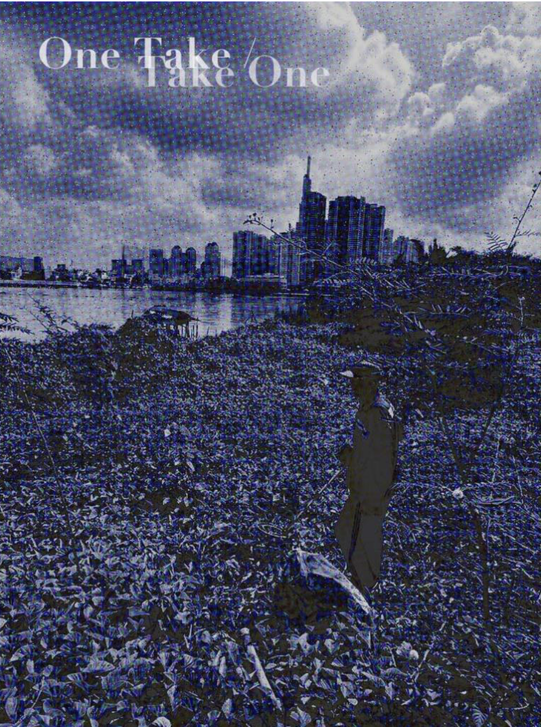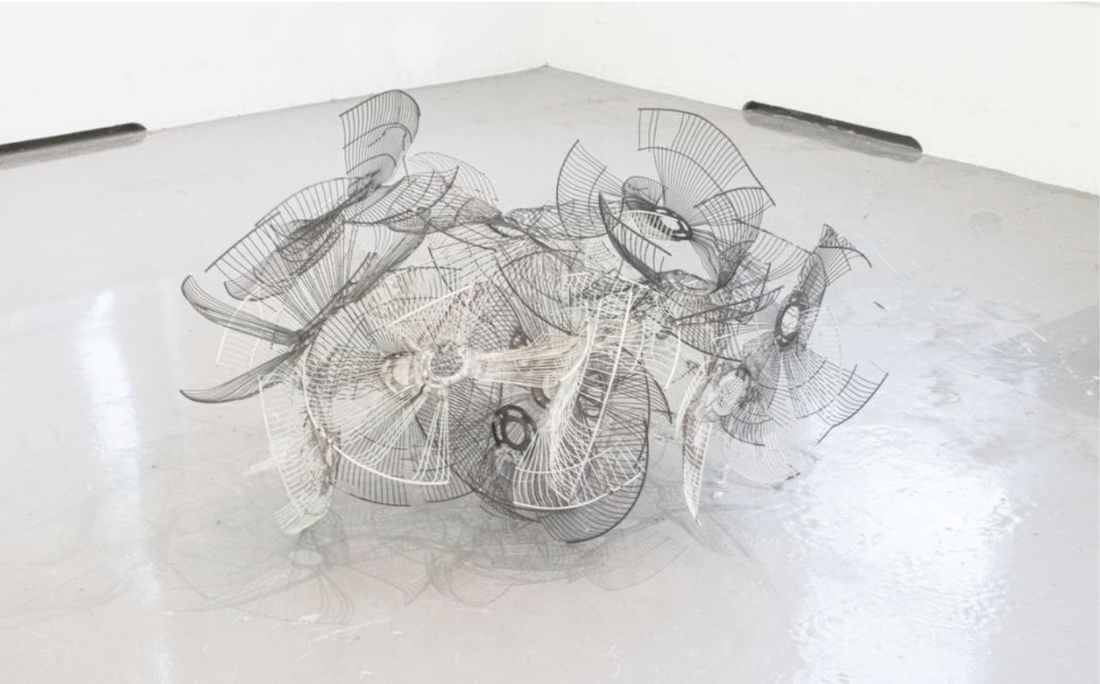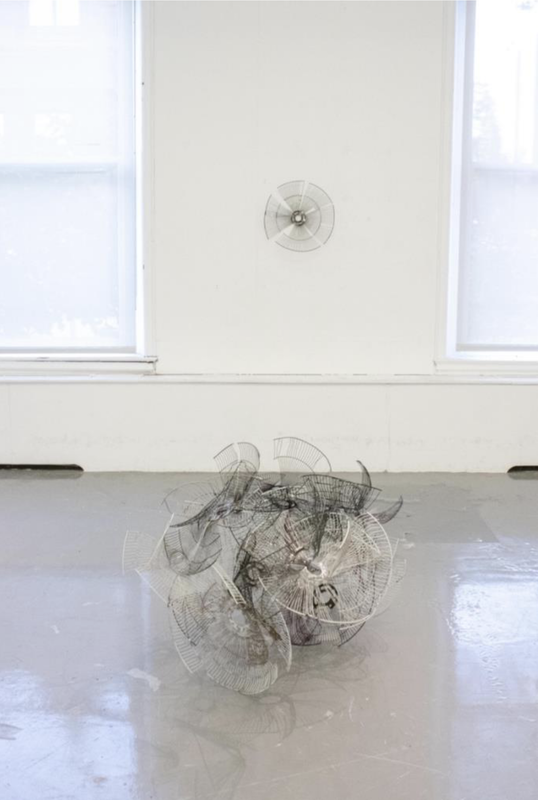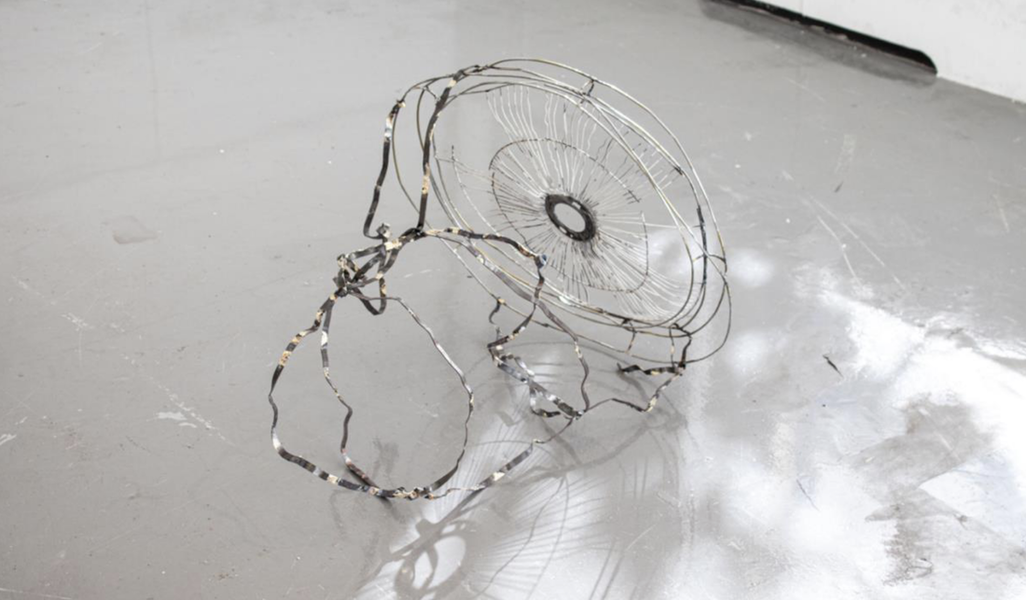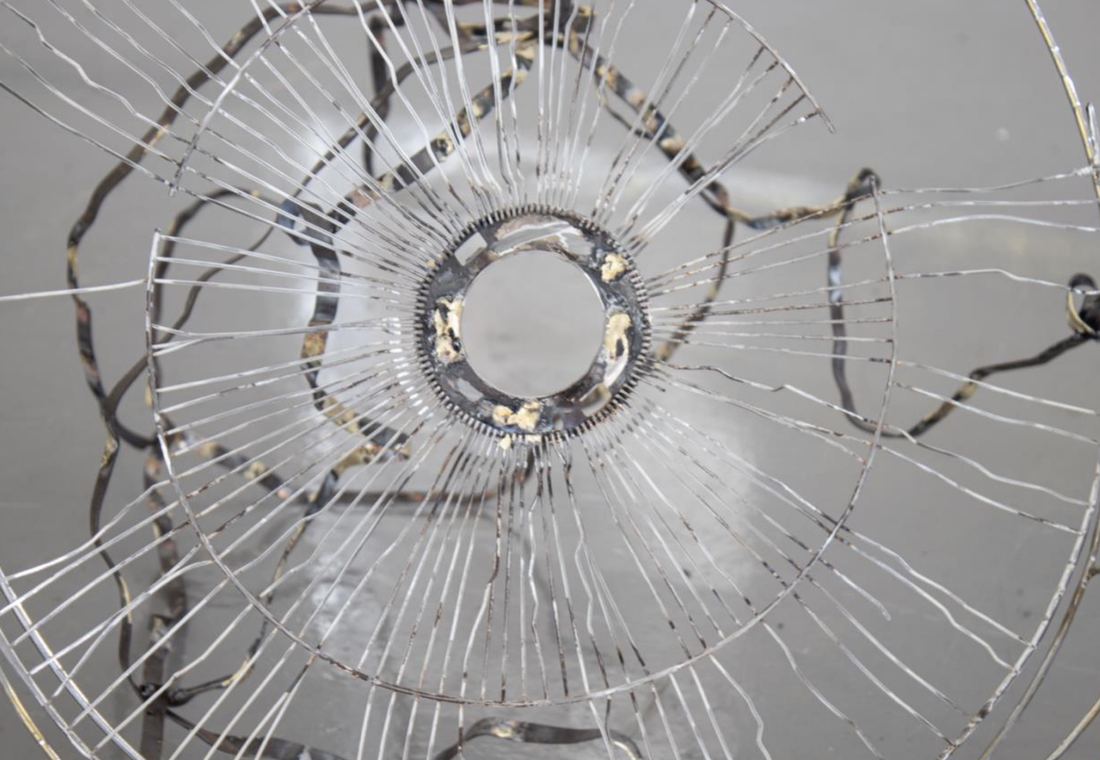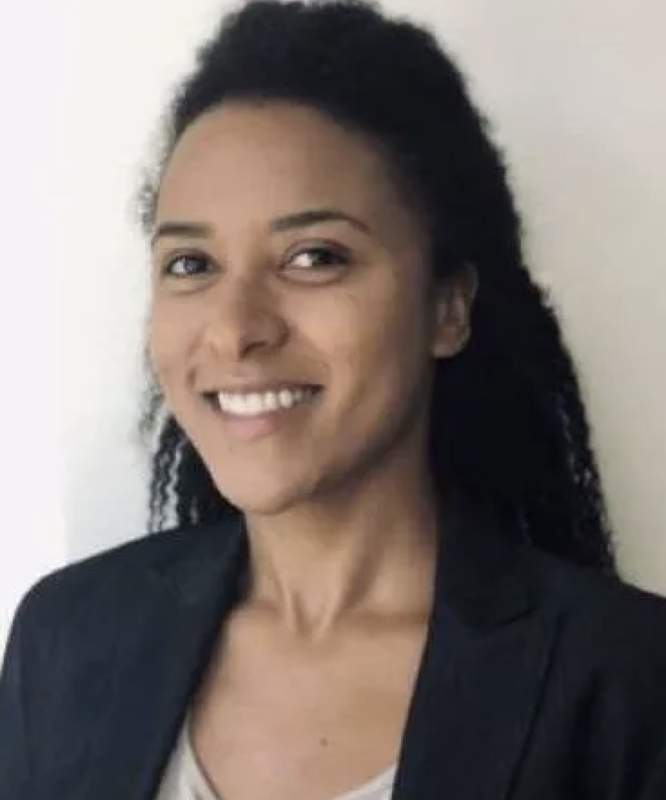CEE | Center for Experimental Ethnography
Menu
CONVERSATIONS
A blog of the Center for Experimental Ethnography
|
Dear Sister,
Are you alive? I’m not sure I am. I have stared at this blank page for hours, no maybe days or weeks. Time is lost to me, only the ebb and flow of light and shadows remind me that the clock chases me, forcing me to not just say something, but to spit it out. To say it before the words are gone, hell, to say it before they come. Though it scares me Time grounds me, fills me, overwhelms me, with intention. Our Sister, Mother, Daughter Zora told us not too long ago, “If you are silent about your pain, They’ll kill you And say you enjoyed it” But, what do I do if it feels like I’m killing myself, surrendering without a fight It wasn’t too long ago that the visceral stress made my mouth water my tongue stretched erect towards the roof of my mouth and my body ran hot. Sister, then you came through and swung the pendulum. You brought me release. You made me exhale. You made me breathe. Sister, Mother, Daughter Audre likened us to roaches Our refusal, our determination indestructible But roaches won’t work for me Like Bebe’s Kids we don’t die, we multiply Multiplying so fast, I’m overwhelmed Multiplying so fast, I’m exhausted Overwhelmed by your care Exhausted by the rays of your light Overwhelmed by my love for you Exhausted by the worry, that I’m not enough My hands empty in the presence of your full ones Empty, but diligent Strong to clear confusion and carry doubt Nimble to plant our wisdom with precision Free to wipe the tears that waters our soil Sister? Are you listening? We gotta live We’re gonna live
0 Comments
Sharnita Midgett
“Matriarch in the Presence of Black Joy” Everything we are is the culmination of everything that comes before and after us.This Black feminist belief is one that mainly inspired the collage, “Matriarch in the Presence of Black Joy”. In thinking about a manifesto, I was drawn to a collective manifesto that represented some of the influential figures in my life- my mother, my sister and my nephews. This collage is a collection of paintings, drawings, and photographs created by and of the matriarchal lineage of my family. These are creations from 2020 until recently. These series of paintings and sketches and collecting of old photographs started during the pandemic as a way to escape trauma and envision a world where Black joy exists, even if only for the duration of the time it takes to paint a pumpkin or sketch an antihero. I am preoccupied with the study of and striving for Black joy. It is present in both my research on Black health literacy and longevity throughout the life course and in my own self-care practices. My connection to my family has kept me grounded and centered, and this collage is a symbol of my centeredness and the centeredness of where I come from and where I will go. Paired with this collage are the words, “I just want us to be happy.”
We are excited to introduce the first manifesto of a series of multimedia manifestos created by participants in the "Fables from the Flesh" course taught by Jennifer Harge, which acted as a process-based creative incubator that explored the possibilities of performance through Black feminist thought. Jennifer Harge is a choreographer and was in residence in Philadelphia as the Center for Experimental Ethnography fellow in in Fall 2023. This piece by Lucila Rozas Urrunaga features an experimental video manifesto accompanied by textual work.
VIDEO WORK
For my manifesto, I am inspired and in communion too, with those who influence my thinking, to whom I am indebted for sustaining me and giving me the language, which has been difficult to find because of the disorienting effect that mass death has been having at a larger scale. They have helped me see that the struggles aiming to sustain life through unimaginable violence touch us all and that it is my- and our responsibility to keep them going even when the pain and effort of doing so feel unbearable. I am with/after: Flora Tristán, Maria Pía López, Rita Segato, Sara Ahmed, Verónica Gago, M. Jacqui Alexander, Katherine McKittrick, Gloria Anzaldúa, Sonia Álvarez, Victoria Santa Cruz, Giuseppe Campuzano, Pedro Lemebel, José Esteban Muñoz, the feminist movement in South America, mis ancestras and hermanas in Peru and across the world who sustain my life, who take care of me, who’ll call me back into existence if for whatever reason I disappear, too.
I define my manifesto as a summoning of these important voices that enable mine, but also as an invocation of an alternate affective frequency where the bodies/territories who feel the calling can find each other to reclaim, remember, and revive those who are not deemed worthy of existence. It is a call for the recognition of us as a collective body, as part of an unbeatable force that can transform death into new beings. That holds the memory intact, so we remember, even when the world forces us to forget through the same violent means that led to the annihilation of those that it marked as disposable. This manifesto wants to move us into breaking the trappings that want to keep us forgetful, immobile, and inert. These thoughts and intentions come to life in the visual piece, which I decided to build in two parts. The first part is influenced by the concepts and imagery behind various pieces. One is the public feminist performance BASTA (Argentina), where naked women inside trash bags that hang from the front side of a building make their way out of them, in an act of radical affirmation and aliveness. There are also the stagings of Antigone and “Adiós Ayacucho”, by the theater collective Yuyachkani (Peru), which depict acts of remembrance and resuscitation of the ungrievable body. The performances and writings of Pedro Lemebel, who actively engaged his body in resistance and remembrance against the systematic elimination of queer, fem people, by the Chilean state, also inspire me. Even when imperfect, the first part was an attempt to put my body on the line by trapping myself inside a tightly wrapped funeral bundle made of black fabrics. Here, I was trying to give due recognition to death and the process of grieving, and how, even when difficult, it may provide the force and the potential to open the portals for life again. The second part portrays the breaking through the portal and the coming back to life, although what is dead is not left behind or forgotten, but present, like the foundations of a house that is rebuilt after falling apart. This part contains my voice and presence more explicitly, as I appear centrally in the visual frame and my words wrap up the performance. These words are in Spanish, my mother tongue because I want to demarcate part of my cultural inheritance and resist the colonialist imperative of using English, even when I recognize that Spanish was also once a language of colonization. My words are one of the ways I found to reassert re-existence, beyond my struggles and my body, to make the connections between myself, the territory, and the collectivity that rebuilds me/us and sustains me/us. It recognizes the important role of sisterhood in memorializing and injecting life into collective struggles, back and forth in time and space, and beyond the material existence of our individual bodies. Finally, I also wanted to make the body present through sound. The soundscape I composed for this piece contains the distorted sounds of hands clapping, breaths, and voices. Some I made with my own body, and some of them, mainly voices, I have sampled from two songs performed by different artists. One of them is the elegy “Triste (Con Fuga de Tondero),” sung a capella by Peruvian artist and activist Susana Baca, who is a central cultural figure in Peru, the country I come from. Susana’s voice has given me an important refuge to feel connected and alive in troubled times. I have also sampled (somehow unrecognizably) the choral voices in the protest anthem “Canción Sin Miedo,” by Mexican artist Vivir Quintana. This song is an act of resistance against feminicide and memorializes the women who disappear daily in Mexico (and all over Latin America) because of the extremely cruel forms of gender violence, that have become normalized and institutionalized in these territories. I want to honor these pieces here, too, as they portray the affects related to grief, mourning, and desire that I have been trying to convey in this performance.
Shelby Davies, MD (she/her/hers) is an Attending Physician in the Division of Adolescent Medicine at Children’s Hospital of Philadelphia (CHOP) and an Assistant Professor of Clinical Pediatrics at the Perelman School of Medicine at the University of Pennsylvania.
Dr. Davies provides general adolescent medical care on the inpatient adolescent medical unit, specialized outpatient adolescent medical care at the Adolescent Special Care (ASC) Center, and outpatient adolescent primary care at Karabots Pediatric Care Center. She also provides general adolescent medical care at Covenant House, PA, a youth shelter located in Philadelphia. Dr. Davies is passionate about advocating for social justice through patient care, education, and research. Her current research focuses on the physical and emotional experiences of menstruation among adolescents and young adults, with a specific emphasis on unique experiences of adolescents with decreased access to adequate menstrual health and hygiene practices. Click the link above to read some of Shelbys' newly published research! 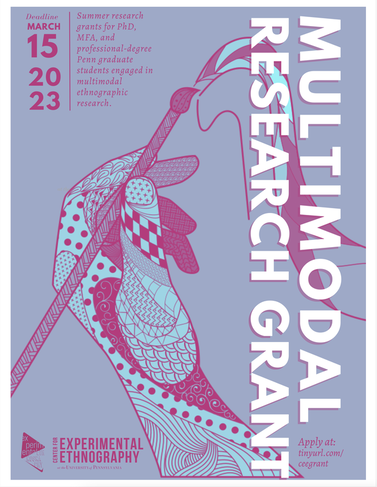 We invite doctoral, MFA, and professional-degree graduate students from across Penn to apply for CEE multimodal research grants, which support multimodal ethnographic research and experimentations, in film, performance, sound, creative writing, installation, drawing, and beyond. To apply, submit the following to experimental-ethno@upenn.edu: a 750 word proposal outlining the specific methods, and the broader significance of the intervention (this proposal should also demonstrate engagement with the mission of CEE); a budget not to exceed $1500; a current CV.
This month's featured research comes to us from Dahlia Li, a dancer, a scholar, and a PhD Candidate in the Department of English at the University of Pennsylvania. They work between performance, cinema and media studies, literature, critical race studies, feminist and queer theories, and continental philosophy. Their dissertation explores the emergence of stranded affect as an enabling psychic idiom of late 20th and early 21st century aesthetic productions that work through non normative corporealities and desires. They have presented and/or performed in pieces at Judson Dance Theatre (New York), Festival Danse Directe (Réveillon), The Venice Biennale (Venice), and OpenFLR (Florence), and maintain ongoing projects with collaborators in the U.S. and Europe. Additionally they are a certified Yoga Teacher and a death doula-in-training focusing on transnational and queer of color grief work.
by Dahlia Li
Throughout the spring and summer of 2022, I spent time doing ethnographic work with experimental Canadian Asian dance artist Be Heintzman Hope whose “Nurse Tree” project seeks to establish an alternative genealogy of care grounded in histories of radical BIPOC activism and alternatives to western medicine. Hope’s project overlaps with my own research into bodily ontologies for and histories of dance that dislodge movement from its inscription within the space of entertainment, nation making, and consumption to privilege racial activation as a practice of anti-colonial embodiment and radical care. The now oft-circulated word “care” descends from loss rather than recovery. High German chara means lament, charon to grieve, and old norse kyr is the sickbed. Linguistic ancestry reveals care as the threshold upon which an affective experience of departure commences as the temporality of mortality overlaps that of liveness. “Self-care” begins appearing with higher frequency in the Anglo-speaking world in the 90’s, as medical professionals interested in preventative rather than interventionist models of health advocate for re-organizing daily life to ward off illness. Fitness and food pyramids promise insulation from a world whose geopolitics and scientific advancement cast the world as full of contagion, invasion, and takeover. By the 2000’s self-care taps into late 20th-century new-age mysticism where an enchantment with the forces of the unseen (and suspisciously “non-western” and “other” world of the supernatural, the Oriental, and the primitive sciences) map possibilities for developing the human body and self beyond the regimentations of time, space, and re-productivity wrought by advanced capitalist society. By the 2010’s self-care turns into its own lifestyle industry: skin-care, energy healers, cosmetics, and fitness produce the self as a commodity, a privileged space of retreat and a luxury item for those with enough resource to goop it up. Within this genealogy of both “self” and “care” what emerges are techniques the produce and reinforce an assailed subject whose practices of care allow one to transcend (or perhaps more simply, retreat) from the reality of human vulnerability, dependency, and mortality. Canadian Asian experimental dance artist Be Heintzman Hope arrived at self-care through very different route. Massive hair loss and fatigue following their mother’s repeat encounters with cancer; exhaustion from training in contemporary dance school during the day and pole dancing at night to pay tuition; bouts with medical misogyny, transphobia, and racism; and the need to engaged with inherited bodily trauma as a fifth-generation of Chinese coolie rail workers led Hope to begin investigating ways contemporary dance technique could be more aligned with martial arts philosophies where bodily training functions as a way to re-balance the body’s energies in response to the stresses of daily life. Hope and I first encountered each other in 2018 while looking for new ways contemporary dance might respond to longer histories of colonialism embedded in bodies and different scenes of spectatorship and the possible relations between on-stage/off-stage and scene/unseen that performance could create. As an extension of our ongoing collaboration, Hope invited me to help dramaturgically develop their 2023 “Nurse Tree” performance, which included a significant research process around de-colonizing the practice of body work. Our initial intention for the residency was to work with a group of trans and genderqueer bodyworkers in Montreal to practice share and develop a handbook of best practices and industry rates for bodywork. However, our discussions of how to price forms of health and wellness care not covered by insurance and commodified in superficial ways by a late 20th and 21st century self-care industry opened a much deeper and ongoing conversation around the queer body—and particularly the queer body of color—as a site of extraction, experiment, and abandonment in capitalist economies.
Through a series of guided meditations and movement workshops I led—based the psychoanalytic writings of Frantz Fanon and Didier Anzieu--we uncovered a social expanse that conversations around wage barely glimpsed. All of us had turned to our “wellness” practices (ranging from massage, tai chi, divination, acupuncture, yoga, qi gong, mother tongue re-acquisition, traditional Chinese medicine study, traditional indigenous practices) after certified medical doctors had been unable to treat a major illness. These illnesses were linked to intergenerational traumas or ailments and social duress, almost always emerging around family deaths or moments where normative gender comportments proved inadequate and violent. Repeatedly we found classificatory or categorizing words failed and were often marked by a kind of colonial disciplining: doctors had called us hysterical, named ailments merely “psychosomatic,” often the term for the particular plaint that was used within one’s family or community defied translation into English. The origin stories that surrounded our practices disturbingly reflected male and cis- fantasies of invention and genius that found contemporary continuity with gatekeeping practices we had all encountered in our study.
Our time together was cut short as Hope contracted COVID-19 and last-minute clients called other body workers away. I myself had to return to the states to prepare for the gauntlet of the academic job market and finishing a dissertation. A kind of work can happen when queer bodies of color—deeply invested in the techniques and practices of embodiment—convene and that work’s temporality grates, perhaps fleetingly rebels, against waged time and the racial capital that buttresses and distributes its laboring. During the pandemic Hope and their partner, circus performer and media artist Baco, began creating a video series that queers the genre of the home workout video. “Poetics to Activate the Technology of the Body” opens with an image of a cyborg-like belly button and moves through a psychedelic images that, through intellectual montage, exist a post-industrial landscape. A soothing, ethereal and metallic soundtrack intercut with sounds of natural landscapes (ocean, birds, wind) accompanies the images eventually leading to a distorted voice that guides listeners through a breathing exercise. In Film Studies a “body genre” describes moving image productions that have an effect on an audience’s body “catching the body in the grip of a sensation or emotion, making the body display a physical reaction.” What body genres in image, performance, and words can activate the necessary languages for feeling and durations necessary to stop us from, in Hope’s words “[resenting] the air that you breathe?” Margit Edwards, Lecturer in Theatre Arts, and a Doctoral candidate in Theatre and Performance at The Graduate Center, CUNY, her research interests include 20th & 21st century Africana theatre and performance, theories of coloniality/modernity, and transcultural African dance dramaturgy. She has been a Fellow with the Institute for Research on the African Diaspora in the Americas and Caribbean (IRADAC) and a recipient of the Dean K. Harrison Fellowship. Ms. Edwards comes from a African diaspora dance background with her early post doctoral training in dance ethnography. Her upcoming projects include directing a play by Eisa Davis called “Bulrusher”, a black arts movement class focused on theater and performance, and is involved in a retrospective showcase of the work of poet Jane Cortez that will be showing at the Amant Foundation in Brooklyn, NY.
Title: Untitled Ring (2022) [Pictured above and below]
Her work is informed by personal experiences in medical centers and their surrounding communities. Daniela studies adultification, in which Black youth are perceived as less innocent and more adult-like than their white peers. She works alongside young Black women and girls to explore untapped tools to further equip these same youth to thrive. Through this, she works to counter the narrative of adultification while also allowing young Black girls, through story and image, to have agency in their own representation. Important to her work is ensuring Black girls are able to tell their own stories and their voices be heard and celebrated in academic spaces. To do this, Daniela has partnered with members in the Center of Experimental Ethnography to use innovative multimodal approaches to highlight these voices and expand their reach.
|
Contact Us // 438 PENN MUSEUm // experimental-ethno@upenn.edu
© 2018 The Trustees of the University of Pennsylvania
